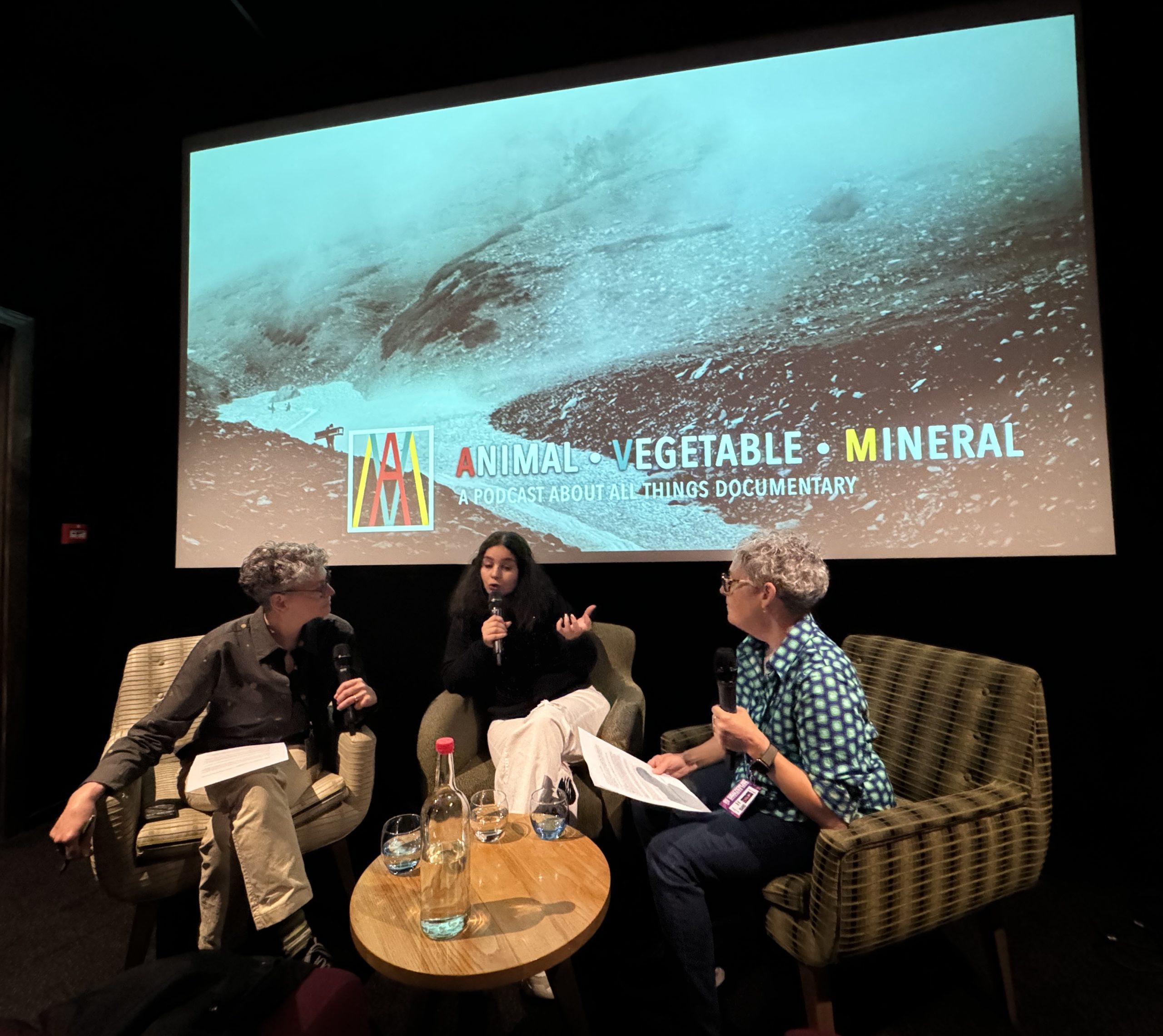In this conversation recorded in front of a live audience at the 2024 Sheffield DocFest, Alisa and Topiary discuss the extraordinary hybrid documentary The Mother of All Lies with its acclaimed first time director from Morocco, Asmae El Moudir.

< Podcast sound file embedded here >
Show Notes:
In this episode, we feature our live interview recorded on stage at the 2024 Sheffield DocFest with acclaimed Moroccan film director Asmae El Moudir, whose debut feature film The Mother of All Lies (2023) blew us away. The film was completing a year-long festival run to great fanfare, including having premiered at the 2023 Cannes film Festival and winning the Best New Director Award in the Un Certain Regard competition. For us, the film was noteworthy in terms of its beautifully realised craft, complex structure, and representation of a dramatic and thoroughly engaging family dynamic on screen. We were particularly struck with the film’s unusual form that integrates the participation of her family members interacting with a large-scale maquette and doll figures that reminded us of Rithy Panh’s use of figurines in The Missing Picture. El Moudir’s film, while utterly unique, is also part of a trend of recent North African women documentarians who are pushing the boundaries of the documentary form in notable ways. (We are thinking particularly of this film’s resonances with Kaouther Ben Hania’s Four Daughters (Tunisia) from the same year, for the ways that both films, though very different in other respects, unflinchingly engage in familial dynamics expressing political themes and imaginatively mix documentary and fiction techniques.
In our interview, El Moudir talks about her approach to making the film, how she was able to involve the participation of her family members and especially of her grandmother, a woman who dictated the censure of photographs in her house for the whole family. In our interview, El Moudir sheds light on her unusual creative choices including her use of a large model of a Casablanca city block and dolls representing each member of her family, the incongruous scale that it presents, the strikingly colorful lighting choices, and the seeming reluctance of her family members to participate in retelling their experiences of the period of Moroccan political repression of the Casablanca Bread Riots of 1981. El Moudir is keenly aware that anyone watching this film especially wants to know more about the process of working with her grandmother, a formidable character in the film who she describes, with no hyperbole, as the dictator of the family. She obliges us by detailing just how she convinced her iconophobic grandmother to participate in her film and how she succeeded in bringing her whole family into the decade long creative process that resulted in this one-of-a-kind film. In short, this interview is a masterclass in innovative filmmaking with this impressive newcomer to the scene. During our interview, we hear about how El Moudir edited 500 hours of rushes down to 5 hours, and worked with the seasoned editor, Nadia Ben Rashid (the Tunisian editor best known for her work with Mauritanian film director Abderrahmane Sissako) to find the final form of the film. As ever, for those who have not yet seen the film, we hope that this interview will prompt you to seek it out. We also hope to encourage those teaching documentary to consider including this film on your syllabus, and to include this episode on your reading list.
Filmography:
Films by Asmae El Moudir:
-
-
- The Mother of All Lies (Kadib ‘abyad, 2023)
- The Postcard (Fi Zaouiyati Oummi, 2020)
Other films mentioned in the episode:
- Bamako (Abderrahmane Sissako, Mali, 2006)
- Closeup (Abbas Kiarostami, Iran, 1990)
- Four Daughters (Kaouther Ben Hania, Tunisia, 2023)
- S-21 (Rithy Panh, Cambodian, 2003)
- Salaam Cinema (Mohsen Mahkmalbaf, Iran, 1994)
- Taste of Cherry (Abbas Kiarostami, Iran, 1997)
- The Missing Picture (L’Image manquante) (Rithy Panh, Cambodia, 2013)
- Through the Olive Trees (Abbas Kiarostami, Iran, 1994)
- Where is the Friend’s House (Abbas Kiarostami, Iran, 1987)
Filmmakers’ mentioned by el Moudir as influences:
- Nuri Bilge Ceylan (Turkish)
- Asghar Farhadi (Iranian)
- Rithy Panh (Cambodian)
- Raoul Peck (Haitian)
- Jean Rouch (French)
- the Makhmalbaf film house (Iranian)
(the Makhmalbaf family: Mohsen, Marziyeh, Samira, Maysam, and Hana)
Downloadable Episode transcript:
–> to be added
< Previous episode >
<Next episode >
